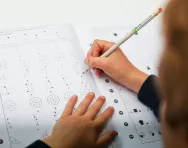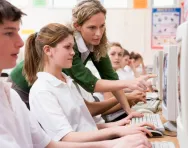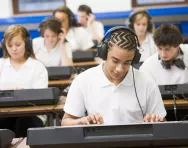Important update from TheSchoolRun
For the past 13 years, TheSchoolRun has been run by a small team of mums working from home, dedicated to providing quality educational resources to primary school parents. Unfortunately, rising supplier costs and falling revenue have made it impossible for us to continue operating, and we’ve had to make the difficult decision to close. The good news: We’ve arranged for another educational provider to take over many of our resources. These will be hosted on a new portal, where the content will be updated and expanded to support your child’s learning.
What this means for subscribers:
- Your subscription is still active, and for now, you can keep using the website as normal — just log in with your usual details to access all our articles and resources*.
- In a few months, all resources will move to the new portal. You’ll continue to have access there until your subscription ends. We’ll send you full details nearer the time.
- As a thank you for your support, we’ll also be sending you 16 primary school eBooks (worth £108.84) to download and keep.
A few changes to be aware of:
- The Learning Journey weekly email has ended, but your child’s plan will still be updated on your dashboard each Monday. Just log in to see the recommended worksheets.
- The 11+ weekly emails have now ended. We sent you all the remaining emails in the series at the end of March — please check your inbox (and spam folder) if you haven’t seen them. You can also follow the full programme here: 11+ Learning Journey.
If you have any questions, please contact us at [email protected]. Thank you for being part of our journey it’s been a privilege to support your family’s learning.
*If you need to reset your password, it will still work as usual. Please check your spam folder if the reset email doesn’t appear in your inbox.
The parents' guide to secondary school: types of school
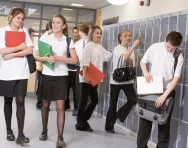
Grammar, academy, specialist college… The terminology surrounding the different types of secondary school can be baffling. We explain the differences between the various types of school to help you decide on the best for your child.
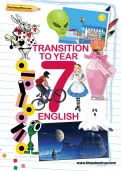
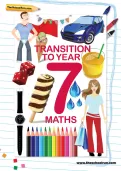
Download Year 6 to 7 transition packs
- English & Maths transition packs
- Practise journalistic writing, figurative language, persuasive text and more
- Revise key maths methods and concepts
State schools
These are schools that are funded by the Government and provide a free education for children aged 16 and under. They’re inspected by Ofsted, and most of them have to follow the National Curriculum (in secondary school the curriculum for KS3 and KS4).
There are many different types of state school, including community, foundation and voluntary, academies, free schools, faith schools, city technology colleges and grammar schools.
Maintained/community schools
A maintained or community school is a type of maintained school that’s controlled by the local authority (LA), rather than by a business, religious organisation or charity. The LA employs the staff, controls admissions and has overall control of budgets. These schools are inspected by Ofsted and have to follow the National Curriculum.
Foundation and voluntary schools
These schools are also state schools that receive their funding from the LA. The main difference is that rather than being run by the LA, they’re run by the governing body. The governing body employs the staff and controls admissions. However, they still have to teach the National Curriculum and are inspected by Ofsted. Faith schools are often foundation or voluntary schools.
Faith schools
State faith schools are schools that are affiliated with a certain religion or religious body, such as the Church of England. Unless they’re an academy (see below), they have to teach the National Curriculum, although they can teach what they like in RE lessons. They’re inspected by Ofsted but may also have an additional inspection by a faith-based body.
The governors set the school’s admissions criteria and decide who to admit, based on their admissions policy. Anyone can apply for a place, but priority is often given to children who practise the faith of the school.
Free schools
Free schools are funded by the Government but are run by an independent body such as a charity, business, university, faith or community group, or even a group of parents or teachers. This gives them more control over their day-to-day running: they don’t have to follow the National Curriculum, and can set their own pay and conditions for staff, and change the length of the school day and school terms. Free schools are all-ability schools; they’re not allowed to select pupils based on academic ability. They’re still inspected by Ofsted.
University Technical Colleges
A University Technical College (UTC) is a type of free school sponsored by a university, further education college or employer. They specialise in teaching skills such as engineering, construction, business and IT alongside academic subjects. The curriculum is designed by the organisation that runs the school, and they also provide students with work experience.
Studio schools
This is another type of free school. They’re generally small, with around 300 pupils, and deliver a more vocational, project-based curriculum. Pupils study for mainstream qualifications but work with local employers and personal coaches to develop skills they’ll need in the workplace.
Academies
Academies are state schools that are funded by the Government but run by an academy trust: a charitable body that controls how the budget is spent and how the school is run. They control their own admissions criteria, and don’t have to follow the National Curriculum, although they do have to provide a broad and balanced curriculum. They’re inspected by Ofsted. Some schools are part of an academy chain that manages several schools in an area or nationwide.
Academisation was initially introduced to improve failing schools. This model still applies, with poorly performing schools being taken over and run by an academy trust, but many good and outstanding schools have also chosen to become academies, taking advantage of the greater flexibility academy status gives them. Sixty-one per cent of all secondary schools are now academies.
Specialist schools
Specialist schools are those that took part in the now defunct Specialist Schools Programme, which provided funding for schools that wanted to become local centres of excellence in their specialist subject. Although the programme no longer exists, 95 per cent of secondary schools are specialist schools.
There are 10 different areas of specialism: arts, business and enterprise, engineering, humanities, language, maths and computing, music, science, sports, and technology. Schools were expected to extend the range of opportunities in their specialist subject, raise standards of teaching and attainment in that subject, and benefit the community (for example, a secondary language school might provide workshops in languages for local primary schools). However, they should provide high standards of teaching and learning in all subjects, not just their specialism.
City Technology Colleges
These are independent schools in urban areas that are free for pupils to attend. They’re owned and funded by businesses as well as the Government, and specialise in practical and technical skills.
Grammar schools
Grammar schools are state schools that are free to attend but select all or most of their pupils on the basis of academic ability. Children take an entrance exam known as the 11+ at the beginning of Year 6 before applying to attend the grammar school. The content varies between schools and areas, but the test typically includes verbal and non-verbal reasoning, maths and English elements. Some schools also offer places to students who have a particular aptitude for sport, music, languages or another subject.
Some grammar schools have a set pass mark, and will offer a place to all children who exceed that mark in their entrance exam. The very best grammar schools don’t have a set pass mark, but offer places to the top performers in the 11+ each year. These schools are often known as ‘super-selective’ and can be extremely tough to get into: it’s not uncommon for children to need to get 98 per cent or over in the 11+ to be offered a place.
Special schools
These are schools for children aged 11 and over with special educational needs. They can specialise in one of four areas: communication and interaction, cognition and learning, social, emotional and mental health, or sensory and physical needs. Within each category, they can specialise further: for example, a school may cater specifically for children with autism or visual impairments.
If your child has a statement of special educational needs or an education, health and care plan (EHC), you have the right to request a place at a specific school that will best meet their needs; this could be a mainstream or a special school.
Independent/private schools
As their name suggests, independent, or private, schools are independent of Government funding or control. They charge fees for pupils to attend. They don’t have to follow the National Curriculum, but they do have to be registered with the Government and inspected regularly. About half of private schools are inspected by Ofsted; others are inspected by the School Inspection Service or the Independent Schools Inspectorate.
Some independent schools take pupils of all ability, while others select the highest achievers, usually on the basis of an exam such as the Common Entrance exam or aptitude in music, sport or another key skill. Some are special schools, for children with special educational needs.
Public schools
Confusingly, public schools are not those that are open to the public. The term refers to the most exclusive and academic private schools in the UK, such as Eton, Harrow, Rugby and Winchester College. Many of them are single sex, and all of them select pupils on the basis of ability.
